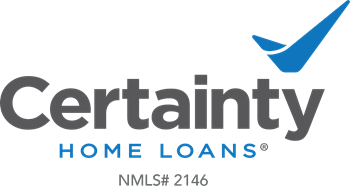Reverse Mortgage
For many, a reverse mortgage can be a useful financial resource for homeowners 62 years and older to purchase a new home, pay off an existing mortgage, create a cash reserve, or be used as a supplemental income for retirement.What you need to know about reverse mortgages
A reverse mortgage, also known as a Home Equity Conversion Mortgage (HECM), is regulated by the U.S. Department of Housing and Urban Development (HUD) and insured by FHA*. They can allow homeowners age 62 years and older to take out some of their home equity without having to pay it back. While no monthly payments are required, the borrower is required to keep any HOA payment, hazard insurance coverage, and property taxes current. Failure to do so will place the loan in default and the lender may be able to foreclose under the terms of the loan.Connect with our Reverse Mortgage Specialist to discuss the options by visiting her website here.
A reverse mortgage can be used as part of your financial retirement plan.
A reverse mortgage can be used as part of your financial retirement plan. With newer loan options that reduce up-front costs, reverse mortgages have become more versatile in recent years. Many homeowners age 62+ are now using a reverse mortgage strategically as part of a sound financial plan. For example, a reverse mortgage line of credit can serve as a cash reserve that you can tap into as needed. And unlike a traditional Home Equity Line of Credit, the unused reverse mortgage credit line actually grows over time.Monthly advances can also help you supplement other retirement income, so you can avoid withdrawing savings or liquidating invested assets. While you must continue to meet loan obligations such as taxes and insurance**, no monthly mortgage payments are required, which can improve your cash flow and help you live more comfortably.
Do you lose ownership of your home?
A reverse mortgage does not require you to give up ownership of your home. As the borrower your name remains on the title and the home is still yours—just as it would be with any mortgage. You must also continue to maintain your home. Once you no longer live in the home as your primary residence, the loan balance, including interest and fees, must be repaid.**How is a HECM loan repaid
Repayment is usually handled through the sale of the home by the homeowner, the estate (or heirs), or the lender. You or your heirs will never owe more than the value of your home when the loan becomes due. And if the loan balance is less than the market value of the home, the additional equity is retained by the homeowner/heirs (if the home is sold).Trusted sources and clear information
You are required to receive reverse mortgage counseling from a third-party counselor before application. With most financial products, there are a number of factors to consider before you can choose what’s best for you. Your experienced and committed Certainty Home Loans team is here to guide you through the decision on whether a reverse mortgage is right for you. Contact us today to get started.*Certainty Home Loans is an FHA Approved Lending Institution and is not acting on behalf of or at the direction of HUD/FHA or the Federal government. **Failure to maintain loan obligations will require the loan to be repaid.
Purchase or refinance an owner-occupied home
Consolidate debt to provide a more comfortable retirement
Renovate your home to help you age-in-place more comfortably
Help pay for in-home care or move closer to family and friends
Common HECM questions, answered.
A Reverse mortgage, also known as a Home Equity Conversion Mortgage (HECM), is regulated by the U.S. Department of Housing and Urban Development (HUD) and insured by FHA*. They can allow homeowners age 62 years and older to take out some of their home equity without having to pay it back. While no monthly payments are required, the borrower is required to keep any HOA payment, hazard insurance coverage, and property taxes current. Failure to do so will place the loan in default and the lender may be able to foreclose under the terms of the loan.
*Certainty Home Loans is an FHA Approved Lending Institution and is not acting on behalf of or at the direction of HUD/FHA or the Federal government.
*Certainty Home Loans is an FHA Approved Lending Institution and is not acting on behalf of or at the direction of HUD/FHA or the Federal government.
For many, a reverse mortgage can be a useful financial resource for homeowners to purchase a new home, pay off an existing mortgage, create a cash reserve, or be used as a supplemental income for retirement.
A reverse mortgage does not require you to give up ownership of your home. As the borrower your name remains on the title and the home is still yours—just as it would be with any mortgage. You must also continue to maintain your home. Once you no longer live in the home as your primary residence, the loan balance, including interest and fees, must be repaid. Failure to maintain loan obligations will require the loan to be repaid.

